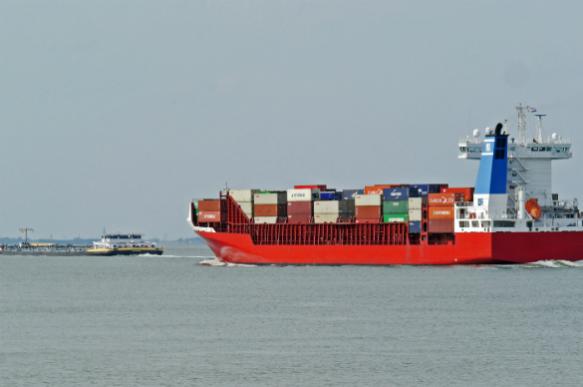Turkish tankers took billions from the Russian budget
While Russia and Turkey are busy restoring bilateral cooperation at the highest level, some unscrupulous entrepreneurs ruin the picture of achievements in this area by taking advantage of the readiness of the Russian side to provide favourable conditions for their activities in Russia. Turkey-based company Palmali, the child of Turkish and Azerbaijani entrepreneur Mubariz Mansimov, has received a lot of media attention recently.

"By and large, we see a coherent and purposeful system of long-term dubious combinations. Instead of the amount of $44.8 million that the Turkish company was supposed to pay in the form of a profit tax, the company "blessed" the Russian budget with the sum of $1.222 million," the Moskovsky Komsomolets newspaper wrote about the company.
The story started in 2013, when Russian tax inspectors were checking Palmali LLC, a part of the Turkish group, which was established in Rostov-on-Don in 2000. As a result of the inspection, the Southern Investigation Department on Transport of the Investigative Committee of Russia instituted a criminal case in early 2016 against the director of the company, Alexei Mikhelev, under clause "b" of Part 2 of Art. 199 of the Criminal Code of the Russian Federation ("Evasion from paying taxes in an especially large amount"). The amount in question exceeded 1 billion 282 million rubles.
Investigators claimed that Mikhelev "submitted to the Tax Inspectorate Office of the Leninsky District of the city of Rostov-on-Don tax returns on the profit tax for 2010 and 2011, in which he deliberately included false and understated information on the amount of profit that the company had received from activities to transport cargoes by water in 2010-2011 and the amount of corporate income tax payable to the budget for 2010 and 2011," a report from the Investigative Committee said.
"Investigation will determine whether Mr. Mikhelev was acting single-handedly," the Kommersant newspaper wrote back then. In fact, as the Moskovsky Komsomolets correctly noted, it is hard to imagine that the owner of the parent company had no knowledge of such large-scale scheming, taking into consideration the fact that he did not leave the Rostov daughter company without attention either: in 2013, it was involved in an interesting transaction.
In 2013, Palmali Gemi Hizmetlerive Agentelik Anonim Sirketi, a company registered in Istanbul, which owns Palmali LLC, decided to sell it. The buyer was Palmali Holding Co. Ltd, registered in Malta. It is easy to notice the similarity in the names of the three "characters" of the transaction, and this is not incidental, because the ultimate owner of both the seller and the buyer is Mubariz Mansimov. "One could say that he took something from one pocket and put it in another one," the Moskovsky Komsomolets summarised.
The transaction raises many questions with journalists. The agreement on the deal was signed on December 27, 2013. The document indicated the value of Palmali LLC - $230 million (according to authoritative audit company Deloitte Malta). The same year, the seller received $140 million in advance from the buyer and $90 million - next year.
Despite the delay in the payment, Palmali Holding Co. Ltd. obtained full control over the Rostov-based company on January 1, 2014. However, in Russia, the sales contract was signed only on November 5, 2015 in the amount of $6.112,377 - almost 38 times less!
The Moskovsky Komsomolets concluded: as long as such a transaction could not but attract the attention of fiscal authorities (the participants of the deal with Mansimov at the head were well aware of that), the following sentence was added to the text of the agreement: "The seller shall guarantee that he enters into this agreement not because of a combination of circumstances under highly unfavourable conditions for himself, and this agreement shall not be an unconscionable transaction."
One is left to hope that the tax service that persistently pursues Russian companies, will find time and resources to close this case. In 2016, when a criminal case was initiated against the head of Palmali LLC, the Kommersant asked a logical question: why did it take investigators several years to verify the information and show a reaction to it? Today, when Russia adopts more and more taxes to increase the volume of tax revenues to the federal budget, the case of Palmali Company should not fall back into oblivion.
Subscribe to Pravda.Ru Telegram channel, Facebook, RSS!


